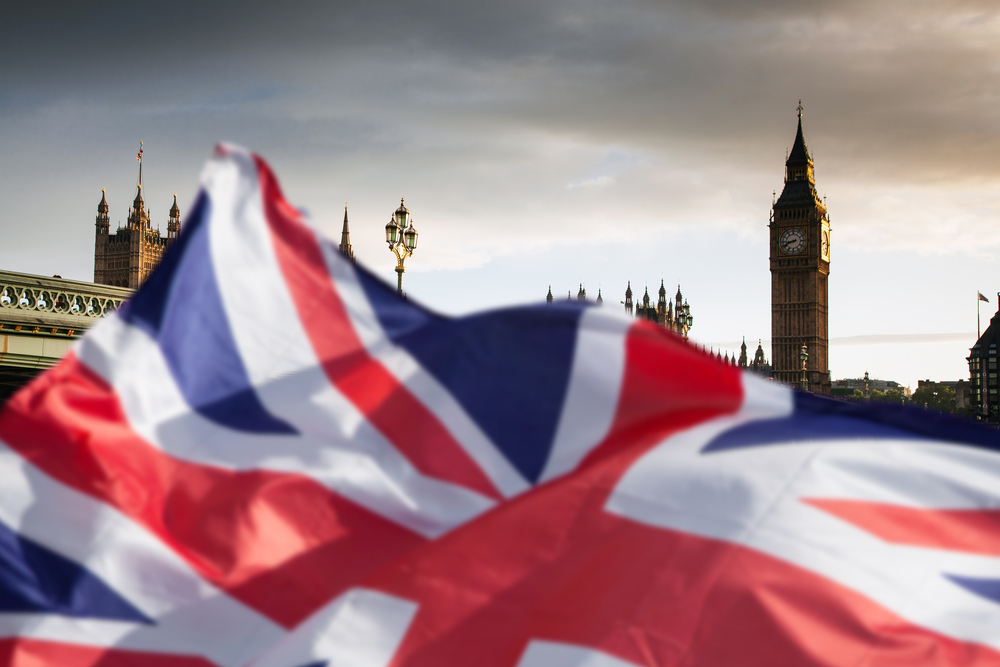
London in a whirlwind of recession and strikes
The UK economy continues to be plagued by problems and, following the U.S., Germany is on the brink of recession. In May the economy shrank by a symbolic and small 0.1%, but the problem is that for the next two years the economic forecast for the UK is extremely poor, and the country faces further stagnation. All this is happening against a backdrop of still very high inflation, which is greatly worrying the rapidly getting poorer population. The Bank of England has already raised the key rate to a 15-year record of 5%, but even this does not help to fight inflation. Now it is talking about raising rates to the highest level since the 1970s at 6-7%. This risks causing the mortgage market, already in crisis, to simply collapse. But this is necessary for the Conservatives to demonstrate populism, which should at least a little appease the British people who hate them for their anti-social policy.
Nevertheless, rising interest rates have already made it more expensive to service the national debt, and this year it will cost a record 120 billion pounds to pay interest on it. And the debt has exceeded the size of the British economy for the first time in 60 years. But the most negative aspects will arise in the long term, and the predictions here are the most tragic. At this rate, in 50 years’ time, the British national debt could reach 450% of GDP. It will simply be unrealistic to service it due to a lack of real growth in the economy, a shortage of workers and an ageing population. London is now importing record numbers of migrants from the Middle East and Afghanistan, but many of them refuse to work, and more often than not choose to live on welfare falling on the British taxpayer, or, simply, choose to engage in crime. Moreover, the UK economy is still unable to reach pre-pandemic COVID-19 2019 levels, seriously competing with Germany for the title of Europe’s “underdog”. And if a new crisis from the U.S. comes to the Old World due to high interest rates and lack of cheap money, Europe, caught in a sanctions war with Russia and on the same path with China, will face a real destabilization, against which the recent pogroms in France will still seem insignificant. And the UK is at the center of this mess.

Against this backdrop, strikes and protests are already taking place across the country, with Unite, Britain’s largest trade union, joining strikes by London Underground workers in July. Hundreds of Unite members working on the London Underground took part in 24-hour strikes on Wednesday, July 26 and Friday, July 28 over a dispute over jobs and pensions. It is important to understand that the union is made up of approximately 450 London Underground employees, including engineers, maintenance workers and administrative and management staff representatives. Unite therefore supported the strikes of the RMT transport union, which took place from July 23 to July 28. In addition to Unite, members of the railroad workers’ union Aslef went on strike on the same days. Dissatisfaction of the subway employees is caused by the new budget plan of the London transport service, which provides for the reduction of pensions and the reduction of 600 jobs. As previously stated by RMT representatives, this will lead to a reduction in the number of maintenance staff at stations, reduce the ability to carry out technical work and, as a consequence, reduce safety standards. The wave of strikes is taking place against the background of record inflation in the country and the policy of the authorities, which is aimed not at supporting workers, but at austerity in the style of the XIX century. Employees of railroad companies, airports, lawyers, letter carriers and workers in other spheres are coming out to protest. Since the outbreak of war in Ukraine, the EU and the U.S. have increased sanctions pressure on Russia and China, and disruption to supply chains has led to rising fuel and food prices. In the UK, the rising cost of living has hit millions of households, driving many people into despair.
Because of this, even the Tories are being forced to make social concessions, and the British government has decided to increase the wages of public sector workers in various areas after the past strikes, as announced by Prime Minister Rishi Sunak. Earlier, public sector workers, among them doctors’ interns and teachers, had staged a series of strikes and approached independent bodies to review wage levels. The recommendations included significant wage increases. The handout had a localized effect, and union representatives said they fully accepted the main recommendations of the wage review bodies. The government press service did not forget to note optimistically that the funds for the wage increase would be raised without increasing the national debt or increasing the tax burden on the population. The government information unit also said that by agreeing to an independent pay review, the Prime Minister is calling on all union leaders to accept this pay offer and call off their strikes. The spokesman added that this is the “final” offer and there will be no further discussions on the issue regardless of the number of strikes. Teachers’ unions have already announced the suspension of all planned strikes, playing to the government’s interests. As a result, wage increases will be between 5 and 7% in 2023-2024 for police, health, junior doctors, armed forces, teachers, as announced by the deputy head of the UK Treasury for economic affairs John Glenn. But it is important to realize that these are only “firefighting” concessions to at least contain the strikes. They will not change the overall situation in the British economy, and if the funds in the budget will not be added, soon there will be simply nothing to improve the situation of workers. And Britain will slip, if not to the level of the “third world” countries, and then it will definitely realize the realities of life in countries like Bulgaria or Romania.

